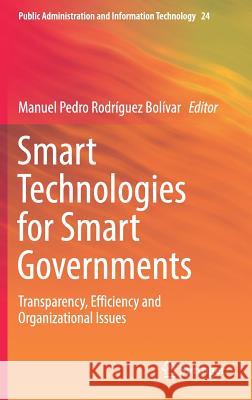Smart Technologies for Smart Governments: Transparency, Efficiency and Organizational Issues » książka
topmenu
Smart Technologies for Smart Governments: Transparency, Efficiency and Organizational Issues
ISBN-13: 9783319585765 / Angielski / Twarda / 2017 / 196 str.
Kategorie BISAC:
Wydawca:
Springer
Seria wydawnicza:
Język:
Angielski
ISBN-13:
9783319585765
Rok wydania:
2017
Wydanie:
2018
Numer serii:
000450928
Ilość stron:
196
Waga:
4.44 kg
Wymiary:
23.5 x 15.5
Oprawa:
Twarda
Wolumenów:
01
Dodatkowe informacje:
Wydanie ilustrowane











